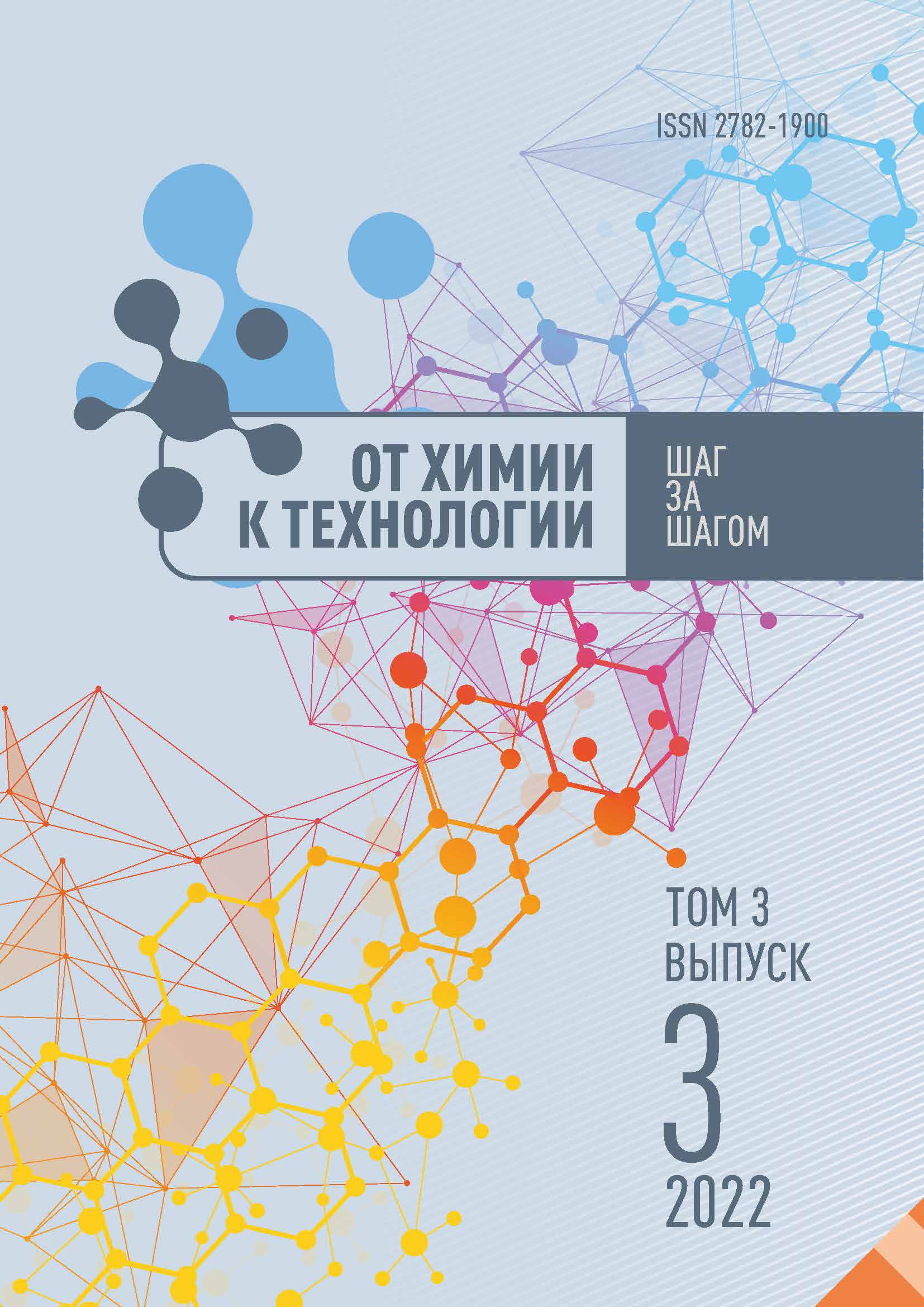Biysk, Barkaul, Russian Federation
Biysk, Barkaul, Russian Federation
UDC 579.22
Based on our own research results and analysis of literature data we have proposed conditions and composition of nutrient media for the cultivation of Propionibacterium freudenreichii. As an inoculum we used propionic acid bacteria concentrate, which contains cells of selective strains of Propionibacterium freudenreichii. In the nutrient medium we kept the following concentrations constant: inoculum - 5% vol, cobalt chloride CoCl2 at a dose of 20 mg/l, and hydrolysed milk concentration - 5% vol. The contents of yeast autolysate, ascorbic acid, ammonium sulphate and lactose were varied in the composition of the nutrient medium. We cultivated the resulting mixture in a thermostat for 7 days at 30 °C and a pH of 7.0. The cultivation process was optimized by the Box-Wilson method. Using the method of mathematical planning we designed a full factor experiment FFE 2n, which allowed us to optimize the nutrient medium for propionic acid bacteria with the highest increase in bacterial biomass and accumulation of vitamin B12. We found optimal cultivation conditions for the Propionibacterium freudenreichii biomass accumulation, where the maximum biomass value at day 5 of cultivation was 60.5 g/l with high viable probiotic bacteria cell content of 12×1012 CFU/cm3 and maximum vitamin B12 accumulation at day 5 of cultivation equal to 108.1 µg/ml.
propionic acid bacteria, Propionibacterium freudenreichii, cultivation, process optimisation, nutrient medium, Box-Wilson method, vitamin B12, full-factor experiment
1. Tang, W.H.W., Hazen, S.L. & Kitai, T. (2017) Gut microbiota in cardiovascular health and disease, Circulation Research, 120(7), pp. 1183-1196. DOI:https://doi.org/10.1161/CIRCRESAHA.117.309715.
2. Zoumpopoulou, G., Tsakalidou, E., Papadimitriou, K. & Pot, B. (2017) Dairy probiotics: beyond the role of promoting gut and immune health International, Dairy Journal, (8), pp. 46-60. DOI:https://doi.org/10.1016/j.idairyj.2016.09.010.
3. Cousin, F.J., Jan, G., Mater, D.D.G. & Foligné, B. (2011) Dairy propionibacteria as human probiotics: a review of recent evidence, Dairy Science & Technology, 91(1), pp. 1-26. DOI:https://doi.org/10.1051/dst/2010032.
4. Ammar, E.M. & Philippidis, G.P. (2021) Fermentative production of propionic acid: prospects and limitations of microorganisms and substrates, Applied Microbiology and Biotechnology, (105), pp. 6199-6213. DOI:https://doi.org/10.1007/s00253-021-11499-1.
5. Piwowarek, K., Lipinska, E., Hac-Szymanczic, E., Kot, A.M., Kictiszek, M. & Bonin, S. (2021) Use of Propionibacterium freudenreichii T82 strain for effective biosynthesis of propionic acid and trehalose in a medium with apple pomace extract and potato wastewater, Molecules, 26(13), pp. 3965.
6. Ammar, E.M., Wang, Z. & Yang, S.T. (2013) Metabolic engineering of Propionibacterium freudenreichii for n-propanol production, Applied microbiology and biotechnology, 97(10), pp. 4677-4690.
7. Orlova, T.N., Funk, I.A., Ott, E.F. & Dorofeev, R.V. (2020) Propionic acid bacteria and their impact, Syrodeliye i maslodeliye, (1), pp. 28-29. DOI:https://doi.org/10.31515/2073-4018-2020-1-28-29 (in Russian).
8. Begunova, A.V., Rozhkova, I.V., Zvereva, E.A., Glazunova, O.A. & Fedorova, T.V. (2019) Lactic and propionic acid bacteria: the formation of a community for the production of functional products with bifidogenic and hyposensitive properties, Applied Biochemistry and Microbiology, 55(6), pp. 660-669. DOI:https://doi.org/10.1134/S0003683819060048.
9. Isaeva, A.V. (2018) Propionic acid bacteria and their specific features, Mezhdunarodnyy akademicheskiy vestnik, 3(23), pp. 64-66 (in Russian).
10. Ammar, E.M., Jin, Y., Wang, Z. & Yang, S.-T. (2014) Metabolic engineering of Propionibacterium freudenreichii: effect of expressing phosphoenolpyruvate carboxylase on propionic acid production, Applied Microbiology Biotechnology, (98), pp. 7761–7772. DOI:https://doi.org/10.1007/s00253-014-5836-y.
11. Piwowarek, K., Lipińska, E., Hać-Szymańczuk, E. & Kieliszek, M. (2018) Propionibacterium spp. - source of propionic acid, vitamin B12, and other metabolites important for the industry, Applied Microbiology Biotechnology, (102), pp. 515–538. DOI:https://doi.org/10.1017/s00253-017-8616-7.
12. Khamagaeva, I.S. (2014) Prospects for the use of probiotic microorganisms for modern biotechnology, Vestnik VSGUTU, 5(50), pp. 111-116 (in Russian)
13. Khamagaeva, I.S. (2006) Biotechnology of propionate bacteria starters. Ulan-Ude: Izd-vo VSGTU (in Russian).
14. Gora, O.N. & Pavlov, I.N. (2011) Study of some basic factors determining the production of dry preparations of propionic acid bacteria, Tekhnika i tekhnologiya pishchevykh proizvodstv, (4), pp. 78-81 (in Russian).
15. Adler, Y.P., Markova, E.V. & Granovsky, Y.V. (1976) Planning experiments by searching optimal conditions. 2nd edition, revised and extended. M.: Izd-vo «Nauka» (in Russian).
16. Grachev, Y.P. (1979) Mathematical methods of planning experiments: Textbook for Higher Education Institutions in Microbiological Production Technology. M.: Pishchevaya promyshlennost (in Russian).
17. Netrusov, A.I., Egorova, M.A. & Zakharchuk, L.M. (2005) Microbiology Practice: Textbook for students of higher educational institutions. M.: Izdatelskiy tsentr «Akademiya» (in Russian).
18. Mitypova, N.V. (2007) Development of concentrated starter technology based on probiotic bacteria symbiosis: Abstract of Ph. Candidate of Technical Sciences. Ulan-Ude: Izd-vo VSGTU (in Russian).








